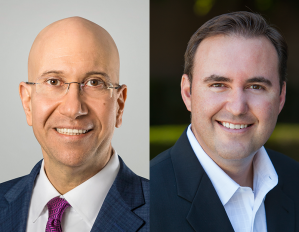How Do Brokers Establish Trust?
Most firms go to great lengths to ensure their professional and ethical standards are always up to par.

As a commercial real estate broker, your most important asset is high professional and ethical standards. Not only do property owners and tenants expect airtight competency and reliability from you. The other professionals you interact with during the course of a transaction or exclusive engagement do also. The brokerage industry is small, especially when it comes to specialty markets, and bad news will travel fast, Coreland Cos. Partner Matt Hammond told CPE.
“Your reputation is everything,” Hammond said. “Yes, you can get ahead by cutting corners, but it will never pay off. You want to be well-respected and trusted, so when there is a deal to be made, other brokers know that you can deliver.“
READ ALSO: Getting in the Heads of Office Tenants
Real estate brokerage is a highly regulated industry, mandating professionals to meet educational requirements for licensing and license renewal, Ariel Property Advisors President Shimon Shkury told Commercial Property Executive. But most brokerage companies go much further to make sure there is a stringent code of behavior in their shops.
Ariel Property Advisors, for example, specifies procedures in its Exclusive Agreements to be sure all laws and ethical practices are being followed while the company’s core values prescribe: an advisory-centric approach before any transaction; a clear alignment of interests; transparent and immediate communication; and the constant pursuit of viable options.
“These standards are integral to our approach, reinforcing our commitment to always providing exceptional service and value to our clients,” Shkury said.
At Colliers, all professionals must accept a Global Code of Ethics and Conduct. The company also ensures adherence to the code through training, policies, and governance. There is also a confidential Direct Whistleblower Line to allow for anonymous reports on any ethical concerns that may need to be referred to the Audit and Risk Committee of the Board of Directors.
Transparency with a capital T
While everyone wants deals to close quickly, the processes behind them are often slow and complex. Before a deal can get to the finish line, brokers may have to negotiate complicated tenant restrictions, navigate zoning and plan submittals, and or sort out conditional use permits, Therefore, the key to maintaining trust and superior service throughout the process is openness, Hammond noted.
“It’s easy to approach any tenancy as ‘no problem,’” he said. “However, you must hold yourself to a higher standard of transparency and communication today, encouraging everyone involved to do the research before a deal goes sideways at the end of the road.”
But research is key from the start of the relationship. “It is best when both parties do as much due diligence as possible up front as to not waste time and money negotiating a letter of intent or lease, which includes owners having preliminary discussions with anchor tenants,” Hammond stressed.
Before problems arise
To stay ahead of ethical dilemmas, Ariel Property Advisors’ brokers are asked to establish certain facts up front by:
- Defining the role: Clarify the sales professional’s role in the transaction.
Identifying the client: Determine who the client is in the transaction (buyer or seller). - Identifying the client: Determine who the client is in the transaction (buyer or seller).
- Maintaining transparency: Clearly communicate with the client throughout the life of the transaction.
- Adding value: Understand to whom you are adding value in the process.
Ultimately, adhering to the correct ethical and operational standards is how brokers to mitigate risk. “You will be more successful over the long term by doing the right thing,” Hammond said.







You must be logged in to post a comment.